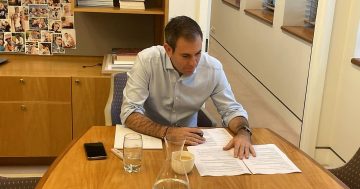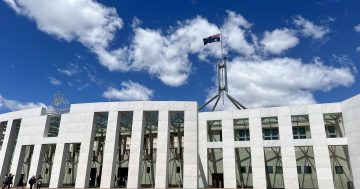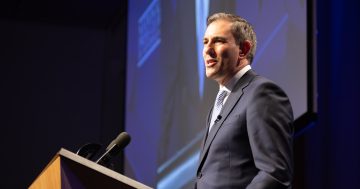
I thought I was financially savvy and understood investment. But then I found out this tip about superannuation. Why didn’t I know it before?
While Canberra has definitely moved beyond the stage where everyone is a public servant, it is certainly true that the capital has a large proportion of people working in the Commonwealth Public Service. And many of them have superannuation schemes that are much more generous than private sector superannuation schemes. But yet I find that most people I know who work in the public service don’t know much about their superannuation. It is sort of understandable as the concept sounds, well kind of boring. That is until you know how it works.
My Dad, who worked as a Commonwealth public servant for 52 years, was lucky to have contributed since the start of compulsory superannuation to the Commonwealth Superannuation Scheme (CSS). Now retired, he earns more per year via his superannuation pension than he did while working. That’s right – more. And he doesn’t need to go to work to earn it, ever. For as long as he shall live (and then a residual amount to his spouse). Oh, and he gets a lump sum as well. That has made for some pretty cool skiing and fishing holidays in retirement.
The successor of the CSS, the Public Sector Superannuation (PSS) Scheme is less generous but is still a good deal. The PSS has not been available to new Commonwealth public servants since 2005, when it was replaced by the PSS Accumulation Plan (similar name, different schemes). The PSS is a powerful investment tool; if you are lucky enough to have a scheme hold onto it like gold bars.
What is so special about the PSS? Well, it is what is known as a defined benefits scheme – basically you can elect to either receive a lump sum payment on retirement, or to receive an income every year for the rest of your life, with your spouse receiving 2/3rds of the salary after your death (should he/she survive you). Michael Miller from MLC Advice says that, unless you are likely to die young, it makes sense to take the pension.
“Say you live for a further 30 years after retirement. Well that is a further 30 years of guaranteed payment, indexed for CPI, with little or no risk.”
The other special thing about the PSS is that the rates that your benefit converts to a pension are high compared to options available to anybody with ordinary super. Michael says that the PSS takes the total value of the fund and divides it by a number determined by your age, to arrive at your annual pension amount. For example say the fund is worth $800,000 – if you retire at 60 you divide that by 11 and you have a figure of $72,727 a year. Similar commercial products providing a safe pension for life, and there are in fact some, would produce a much lower pension for the same amount invested.
Pretty sexy.
But there is more to come. The hot tip that I didn’t know about. This is known as the ten year rule, colloquially as ten for ten.
An employee can make a contribution to his or her super of between 0% and 10% of their salary. Their employer will then match that contribution, up to a cap of 5% in their first ten years of membership.
But after ten years of membership in the scheme, an employee is entitled to make additional contributions to superannuation of up to 10% and the Commonwealth government employer must match it dollar for dollar. That’s right your job will pay extra money for free into your superannuation account. It makes a big difference. Based on my salary and contributions, Michael Miller calculated that I would be $33,000 better off after ten years as a result of making additional contributions.
Superannuation is an important part of the pay and conditions of many Commonwealth public servants. Don’t wait until you retire to find out how it works. Understanding how it functions and how you can maximize it to your advantage could be one of the best investment decisions you ever make.
As well as speaking to your own financial planner, you can access free super seminars from the PSS that are run in public or via webinar (http://www.pss.gov.au/education-and-advice/free-seminars/).




















